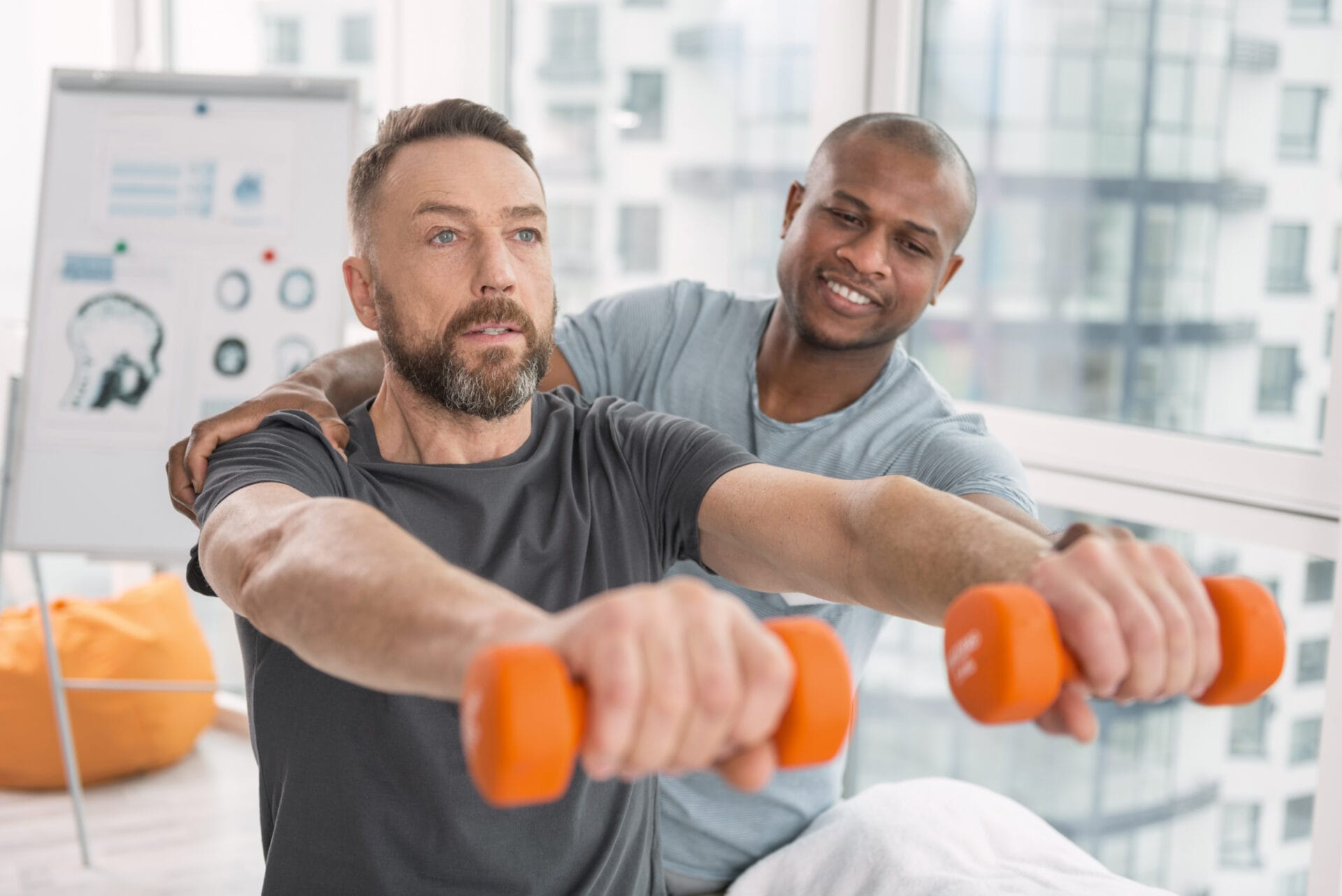Living with a degenerative lumbar spine condition can be challenging, but there are effective ways to alleviate pain and improve your quality of life. At Mountain Land Physical Therapy, our Physical Therapist at our South Jordan clinic, Kyle Radanovich, PT, DPT, empowers patients by providing them with a comprehensive understanding of their condition. By applying simple yet effective pain-relieving techniques and making modifications to daily activities, patients can experience a significant reduction in discomfort. In this blog post, we will explore various strategies to help manage degenerative lumbar spine conditions and enhance your well-being.
The Degeneration Process
The spine’s degeneration affects the vertebrae, discs, and nerves. As we age, the discs lose water, resulting in shrinkage and decreased space between vertebrae. This shrinkage exerts additional pressure on facet joints, causing pain. Narrowing of nerve exit canals in the spine leads to nerve compression and leg pain. Bone spurs from wear and tear can also contribute to nerve pinching.
Understanding Degenerative Lumbar Spine Conditions
These conditions are common in individuals over 65. While complete reversal is not possible, conservative management approaches can mitigate pain and improve daily functioning. Understanding how activities trigger discomfort allows patients to make appropriate modifications and continue routines with minimal or no pain.
Managing Pain in Different Situations
Our Stansbury Park clinic assists patients with pain management in various situations commonly associated with degenerative lumbar spine conditions. Here are a few areas where our expertise can make a difference:
- Pain while sitting: Prolonged sitting can exacerbate discomfort. We provide guidance on ergonomic principles, posture correction, and tailored exercises to relieve pain during prolonged sitting.
- Pain while standing: Standing for extended periods may strain the lumbar spine. Our experts will educate you on proper body mechanics, supportive footwear, and exercises to alleviate standing-related pain.
- Pain in legs: Degenerative lumbar spine conditions can cause radiating pain in the legs. Our team employs targeted therapies, exercises, and pain management techniques to address leg pain effectively.
- Pain after working: Work-related activities can contribute to increased pain levels. We offer comprehensive evaluations, job-specific modifications, and personalized treatment plans to help you manage pain effectively while carrying out your professional responsibilities.
- Pain after exercising: Engaging in physical activities is crucial for overall health, but it can be challenging with a degenerative lumbar spine condition. We specialize in designing exercise programs that improve strength, flexibility, and stability while minimizing pain and strain.
Effective Strategies for Manage Degenerative Lumbar Spine Condition
Understanding the Impact of Posture: Standing and sitting postures significantly affect pain associated with spine degeneration. Standing extends the spine, increasing joint pressure and closing nerve canals, leading to back and leg pain. Sitting promotes flexion, reducing joint pressure and opening nerve canals, providing relief.
Choosing the Right Exercises: Walking, although necessary for mobility, may aggravate inflamed nerves and joints in individuals with a degenerative lumbar spine condition. While it remains important to incorporate walking into daily routines, there are alternative aerobic exercises that can alleviate pain without exacerbating the condition. Exercises such as bicycling, walking backward in the pool, and rowing help maintain a flexed position for the lumbar spine, offering pain-free movement and promoting overall fitness.
Impact of Footwear: Surprisingly, the type of shoes we wear can have a significant impact on back and leg pain. Shoes with heels, such as women’s dress shoes and cowboy boots, cause the lumbar spine to bend backward, resulting in painful joint pressure and nerve pinching. Opting for shoes without heels allows for easier maintenance of a pelvic tilt posture, reducing discomfort and promoting better spinal alignment.
Optimizing Sleep Positions for Pain Relief: Sleeping positions play a crucial role in managing degenerative lumbar spine conditions. Proper positioning during sleep can reduce discomfort and help you wake up feeling refreshed. Consider the following tips:
-
-
- Posterior pelvic tilt: Maintaining a posterior pelvic tilt while sleeping is essential. Sleeping in a “fetal” position on either side with the knees drawn up or on the back with the knees elevated can naturally achieve this tilt.
- Avoiding prone and supine positions: Sleeping on the back or stomach can force the pelvis in the opposite direction, leading to joint pressure and nerve pinching. We recommend avoiding these positions to minimize pain.
-
Degenerative lumbar spine conditions can be effectively managed through knowledge, modifications, and specialized treatments. Our team at Mountain Land Physical Therapy is here to help. Contact our South Jordan clinic at (801) 415-9343 to develop a personalized treatment plan and regain control over your well-being.










